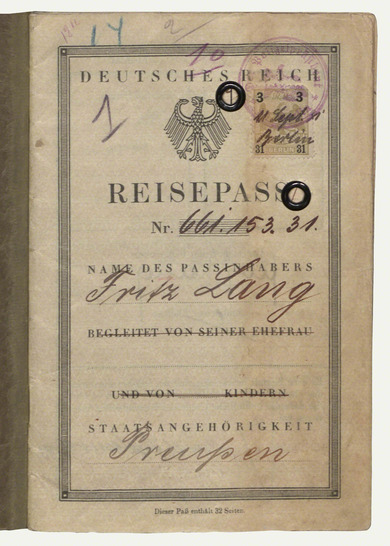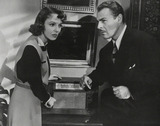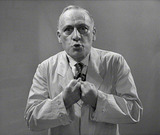Fritz Lang’s Passport (1931)
Fritz Lang’s Passport (1931)
Jeder, der sich für Fritz Lang und seine Filme interessiert, hat wohl schon einmal von dem legendären Gespräch unter vier Augen zwischen ihm und Joseph Goebbels gehört. Lang selbst, der sich sonst über sein Privatleben vollkommen ausschwieg, weil es, wie er meinte, mit seinen Filmen nichts zu tun hätte, erzählte mit Vorliebe diese Geschichte und schmückte sie jedes Mal ein bißchen mehr aus.
[Everyone with an interest in Fritz Lang and his films has probably heard of the legendary face-to-face conversation between him and Joseph Goebbels. Lang, who otherwise kept completely silent about his private life – because, as he claimed, it had nothing to do with his films – delighted in telling this story and embellishing it a little more each time. (ed. trans.)]
Lotte Eisner in her memoirs, 1984
Joseph Goebbels is said to have admired him for his two-part silent film The Nibelungs (1924) and Metropolis (1926), while his legendary work M (1931) has been voted by film historians as the most important German film of all time. Fritz Lang was unquestionably among the most notable and influential filmmakers in Weimar Republic Germany. However, his final work to be directed in Germany, The Testament of Dr. Mabuse (1933), was not granted a release by the Nazi censor. To make amends, propaganda minister Goebbels met Lang to offer him a leading position in Germany’s Nazi-controlled film industry.
The idea that Lang needed only one day to reach a decision to abandon his home, without money, for Paris – as he later claimed in an account of his period in exile – is clearly an exaggeration on the director’s part. The stamps in his passport suggest a less dramatic course of events with at least one brief return to Berlin and some foreign exchange transactions along the way. In France, Lang directed the film Liliom (1934) before emigrating to the USA where he quickly established himself. He directed several films in America, including a number of anti-Nazi propaganda works.



